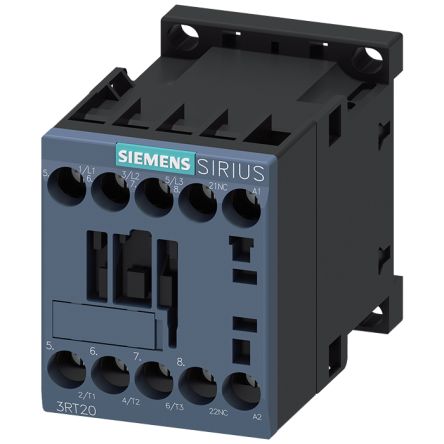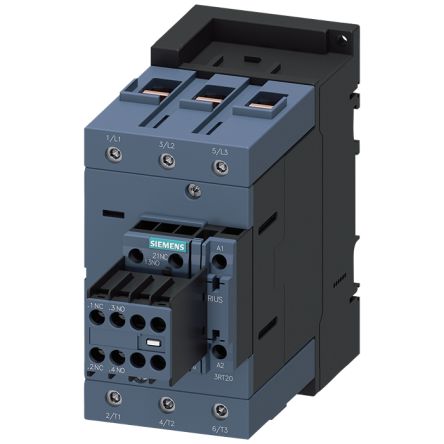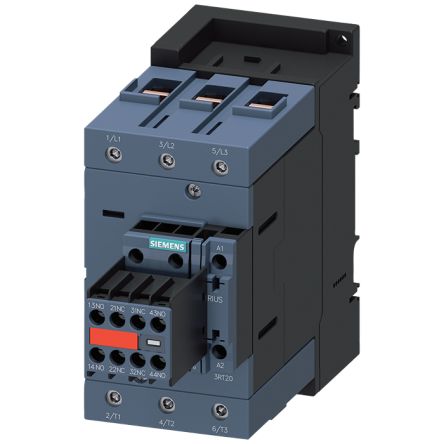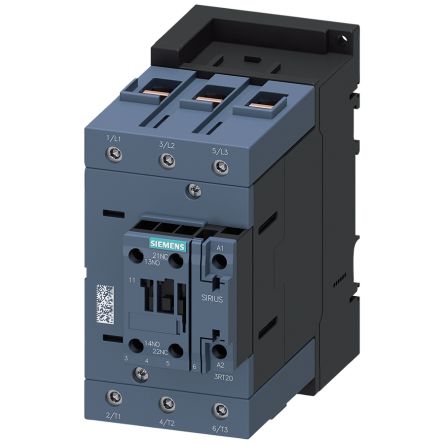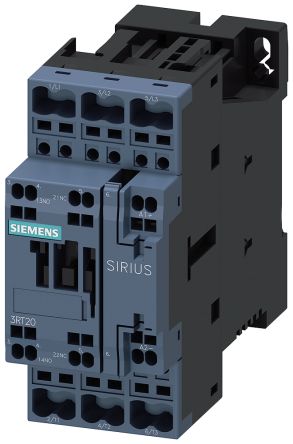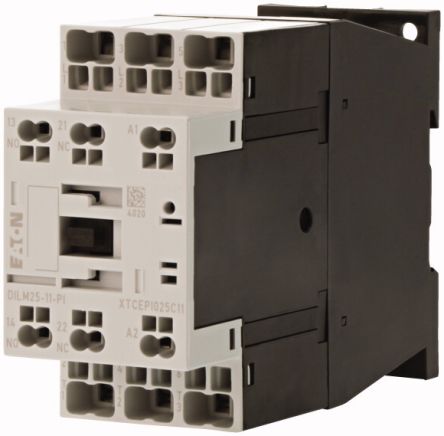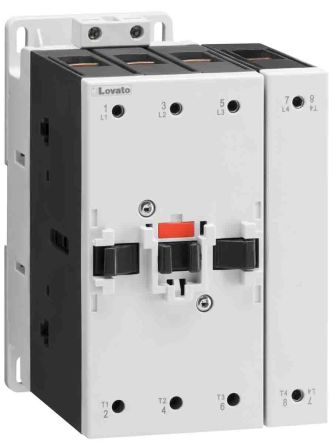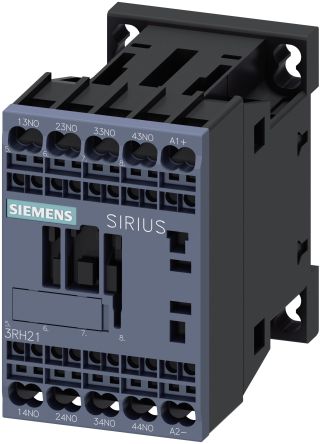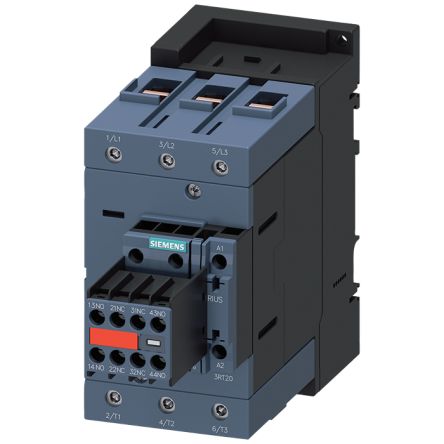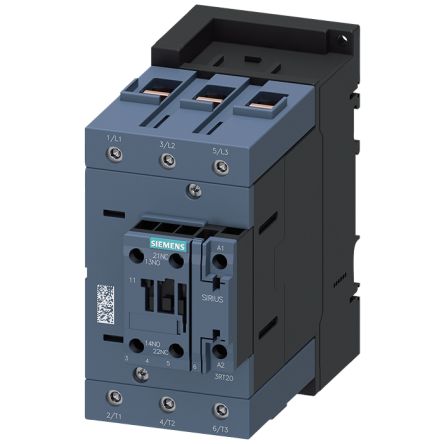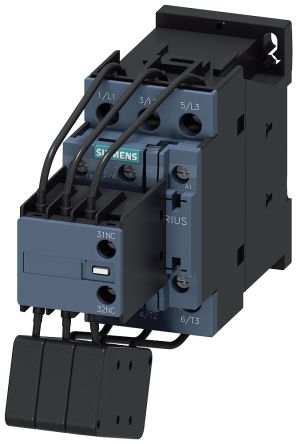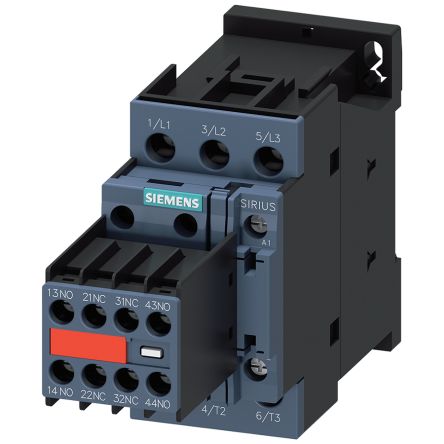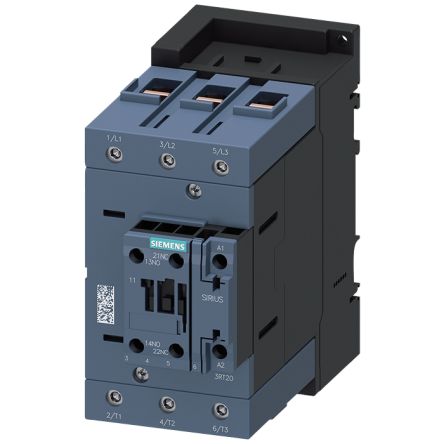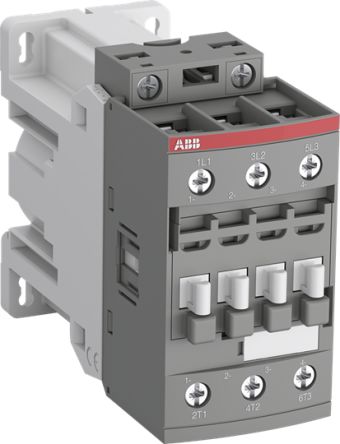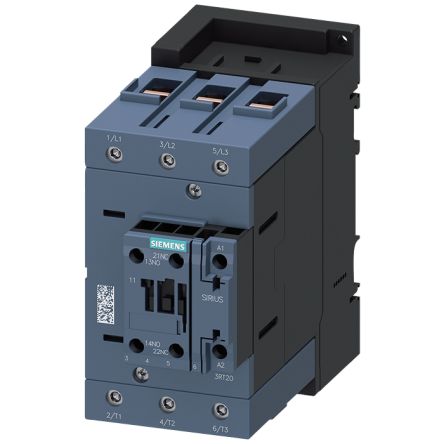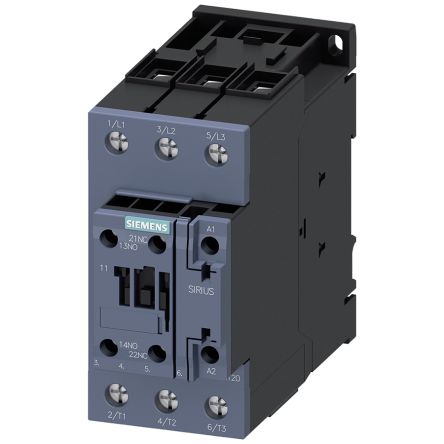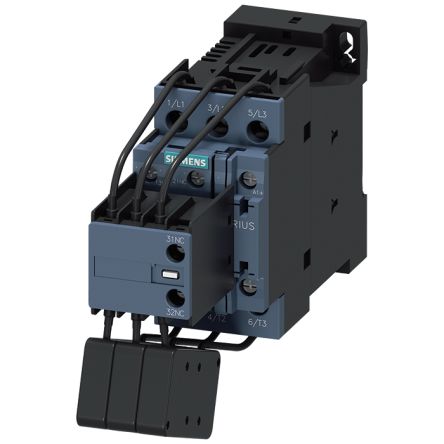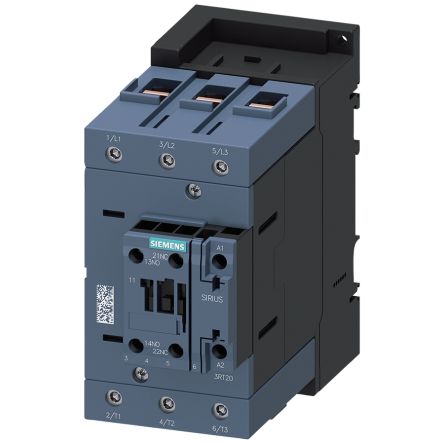- Automation & Control Gear
- Cables & Wires
- Enclosures & Server Racks
- Fuses & Circuit Breakers
- HVAC, Fans & Thermal Management
- Lighting
- Relays & Signal Conditioning
- Switches
- Batteries & Chargers
- Connectors
- Displays & Optoelectronics
- ESD Control, Cleanroom & PCB Prototyping
- Passive Components
- Power Supplies & Transformers
- Raspberry Pi, Arduino, ROCK, STEM Education & Development Tools
- Semiconductors
Contactors
A contactor, often referred to as a contactor switch or contactor relay, is designed for switching an electrical circuit on or off, especially in high-current applications. As part of the relay family, contactors are primarily used to control motors, lighting circuits, heating, and other electrical loads. They operate with spring-loaded contacts that make or break power supply lines rapidly, aiding in arc suppression and enhancing longevity by minimising wear during frequent operation. Contactors can function independently as power control devices or as integral components of motor starters. For more detailed information, check out our comprehensive guide on contactors.
RS offer a comprehensive range of high-quality electrical contactors from industry-leading brands including Schneider Electric, Siemens, Eaton, ABB, and Allen Bradley. Our inventory also includes essential accessories such as Contactor Overload Relays, auxiliary contacts, mechanical interlocks, and much more.
How Do Contactors Work?
Contactors, unlike standard relays, are specifically designed to connect to high current load devices. Used in larger-scale control circuit applications, a contactor is a switch that can be controlled remotely, specifically designed to switch a large amount of electrical power through its contacts. If a device can switch more than 10 amperes, it is called a contactor. These devices also feature high coil voltages which are rare within relays.
Types of Contactors
- Electromagnetic Contactors: The most commonly used type, operating through electromagnetic attraction when the coil is energised.
- Definite-Purpose Contactors: Designed for specific applications, these contactors feature adaptations tailored to meet the needs of specialised systems.
- Reversing Contactors: Used primarily in motor control to facilitate the reversal of motor direction.
- Magnetic Latching Contactors: These contactors maintain their contact state even after de-energisation, which helps in reducing energy consumption and enhancing stability.
- Vacuum Contactors: Suited for high-current applications, employing vacuum interrupters to efficiently extinguish arcs during switching.
Contactor Specifications
There are various types of contactors, and each type has its own set of specifications depending on your application. Some key specifications are:
- AC Contactor or DC Contactor with coils including 12 V, 24 V, 48 V, 110 V, 240 V, 400 V, and 440 V.
- Reversing or non-reversing functionality.
- AC3 and AC1 categories
- Contactors with 2 poles, 3 poles, 4 poles, and even 8 and 10 pole variants.
- Various contact configurations.
- IEC standards
Applications of Contactors
- Motor Control: Contactors are vital for starting, stopping, and reversing motor-driven machinery, reducing wear and tear in industrial and HVAC systems.
- Lighting Systems: In large venues like arenas and commercial buildings, contactors manage substantial lighting loads, promoting energy efficiency and allowing centralised lighting control.
- Heating Elements: Contactors provide precise power regulation to heating elements in appliances such as ovens, water heaters, and industrial furnaces, ensuring safe and efficient temperature control.
- Power Distribution: Used to control electrical power flow in distribution systems, contactors act as remote-controlled switches that help in the systematic connection and isolation of electrical network sections, preventing overloads and faults.
Ordering and Delivery Information
Effortlessly order electrical contactors through RS by using our online platform, where you can add products to your basket for next-day delivery or opt for pickup at a local branch. If you prefer, you can also place your order by calling us directly at +65 6865 3400. For complete details on all our delivery services, please visit our delivery information page.
